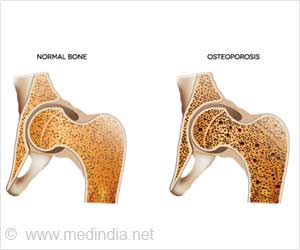The study team analyzed records for more than 157,000 women aged 50 through 79 from 1993 through 2018, sourced from the Women’s Health Initiative, a national study funded by the National Heart, Lung, and Blood Institute.
‘Fractures in the arm, wrist, leg, and other parts of the body also increases the risk for subsequent bone breaks in post-menopausal women, apart from specifically hip or spine fractures as per the current guidelines for managing osteoporosis. However aggressive follow-up of postmenopausal women who experience initial fracture is mandatory.’
Fractures in Post-Menopausal Women
It was found that initial fractures of the lower arm or wrist, upper arm or shoulder, upper leg, knee, lower leg or ankle, and hip or pelvis were associated with an approximately three- to six-fold increase in risk for subsequent fractures among postmenopausal women.
The finding held for all of the age groups studied, with higher risks being more pronounced among non-Hispanic Black, Hispanic or Latina, and Asian Pacific Islander women than among non-Hispanic White women. However self-reported fractures by participants stand as the limitations to the study
However, earlier research has demonstrated that statistics for self-reported fractures are fairly accurate compared with statistics from medical records.
Another shortcoming of the study was that there was no information about broken ribs, which may have led them to underestimate the risk for other fractures.
The bone mineral density was measured for only a subset of participants, so the team could not investigate whether the risk for future fractures was associated with bone density. Thus there is a requirement for more studies to understand why women of some ethnicities have a greater risk for a subsequent fracture following an initial bone break.
The study thereby indicates that aggressive follow-up of postmenopausal women who experience initial fracture is mandatory. The study results would help inform counseling, future guidelines, and the design of intervention trials regarding the selection of appropriate candidates for pharmacotherapy.
Source: Medindia



